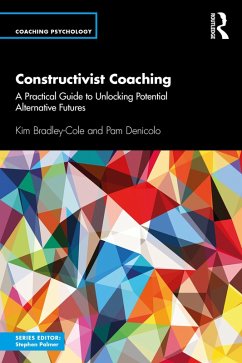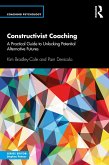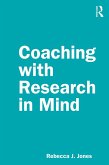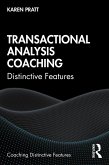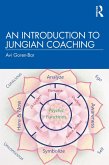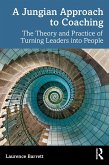Dieser Download kann aus rechtlichen Gründen nur mit Rechnungsadresse in A, B, BG, CY, CZ, D, DK, EW, E, FIN, F, GR, HR, H, IRL, I, LT, L, LR, M, NL, PL, P, R, S, SLO, SK ausgeliefert werden.
Massimo Giliberto, Director of the Institute of Constructivist Psychology, Padua, Italy
This book is a 'go to read' for any coaches wishing to bring a distinct conceptual framework to their elaborative enquiry. Kim and Pam offer a unique constructivist approach which they explain with authority to underpin the coaching process, including expert guidance on conversations and activities.
Almuth McDowall, Assistant Dean and Professor of Organizational Psychology, Birkbeck University of London
The authors have succeeded in writing a practical and interesting text that explains Personal Construct Psychology and Constructivist Coaching to a range of audiences. This includes coaches who are new to the field, experienced practitioners, academics, and those who simply want to explore coaching. The format of the book allows the reader to understand underpinning theories and evidence before introducing tools to apply concepts in practice. The reflection points and a reflections chapter help the coach to choose where PCP is appropriate. Coaches will develop a repertoire of skills through the exploration of novel approaches including use of metaphors, pictures, narratives, and toys/games to facilitate the coaching process.
Laura Rees-Davies, Senior Lecturer, University of Worcester and Chair of the British Psychological Society's Special Group in Coaching Psychology
With its wealth of exercises, examples from practice, coaching aids and reflection points, this book is a very practical guide for the reader who wishes to add constructivist techniques to their coaching armamentarium. Importantly, however, it goes beyond this in providing a grounding, in accessible language, in the theory and philosophical assumptions that underlie these techniques, mostly derived from Personal Construct Psychology. It will therefore be an invaluable and definitive resource for those readers who wish to become constructivist coaches, rather than just coaches who use constructivist methods.
David Winter, Professor Emeritus of Clinical Psychology, University of Hertfordshire
The scope and coverage of this book on constructivist coaching is impressive. Dr Kim Bradley-Cole and Professor Pam Denicolo manage to combine a thorough theoretical base of PCP and at the same time give a practical guide to deep and applicable constructivist coaching practice. Although aimed at constructivist coaching, the fundamental theoretical parts on PCP and the rich variety of examples given will attract not only coaches and occupational psychologists, but will be an invaluable read for anyone interested in PCP. The book deserves a wide readership.
Professor Britt-Marie Apelgren, Faculty of Education, University of Gothenburg, Sweden

